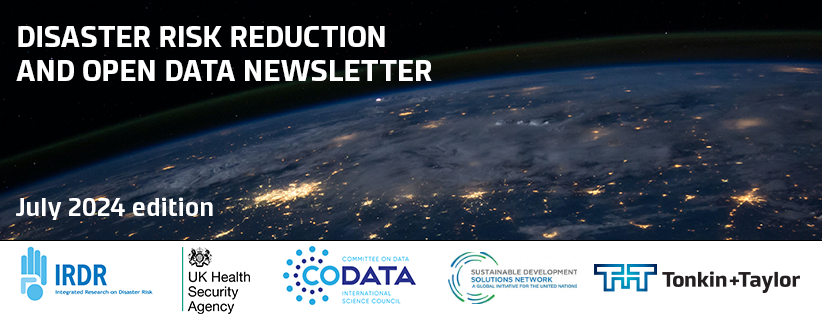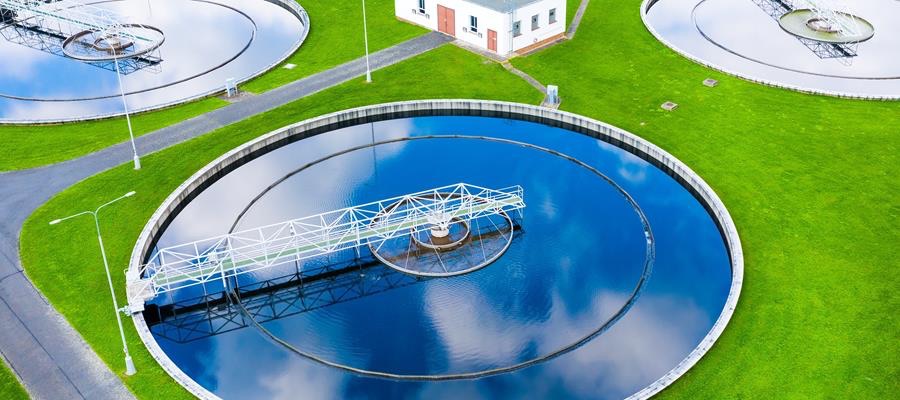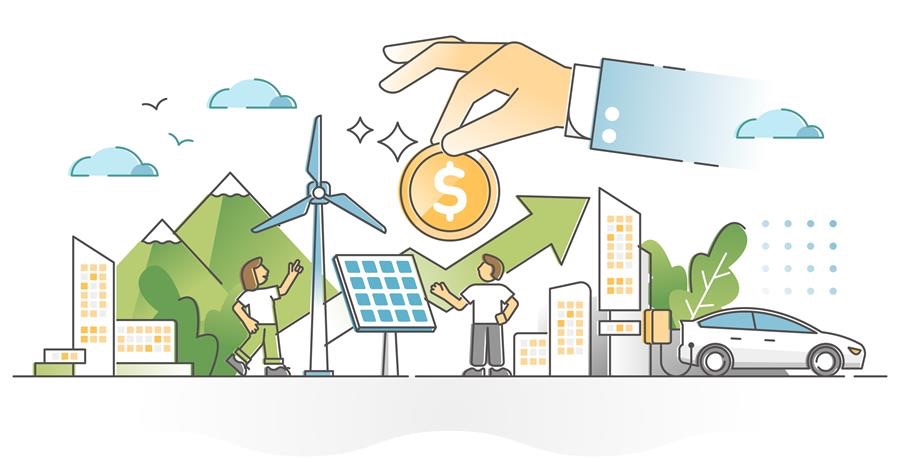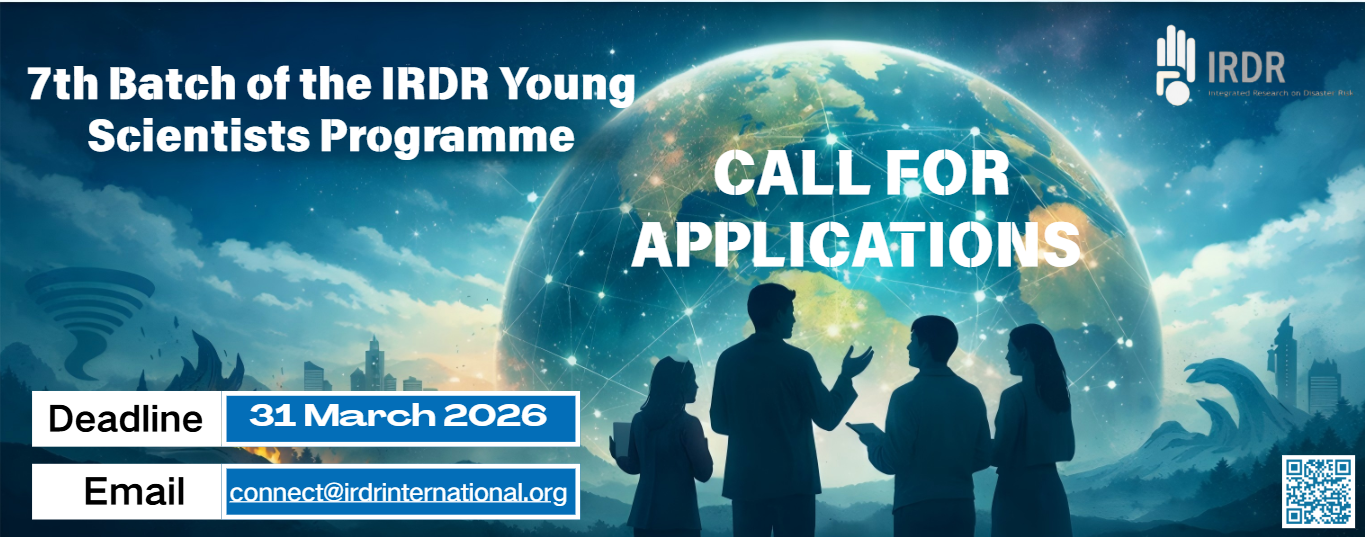
![]()

Ensuring resilient water infrastructure in a changing climate
Climate change is having a fundamental effect on the water sector, and if we look at this from the point of view of Integrated Water Resources Management (IWRM) itself, there is an impact of decision making not only on the economy, but also on key aspects of the national development goals and issues such as food security, environment, health and of course SDG 6.
Water management has a huge economic impact, and if you are able to ensure that IWRM has been embedded into decision making through processes like multicriteria assessment, it is possible to make judgements about how to make the most efficient use of limited water resources.
New AI-led science initiative will help protect communities hit by climate change in East Africa
The United Nations World Food Programme (WFP), Oxford University Physics Department, IGAD Climate Prediction and Applications Centre (ICPAC), and various national forecasting and meteorology agencies across east Africa are joining forces to pioneer a transformative initiative that is revolutionising extreme weather forecasting and early warning systems in the region.
Avoiding gridlock: The impact of climate on electric grids
Grids are the arteries and veins of electricity circulation. Comprising of power stations, substations, transformers, transmission and distribution lines, the grid connects electricity supply to demand. It is a complex and intricate network, exposed to many natural and man-made risks.
Shaping a resilient future: GEM's innovations at WCEE2024
The Global Earthquake Model (GEM) Foundation is gearing up for the 18th World Conference on Earthquake Engineering (WCEE2024) in Milan, Italy, from July 1st to 5th, 2024. This premier earthquake engineering conference brings together researchers, industry professionals, and policymakers to navigate the ever-evolving landscape of earthquake preparedness and mitigation strategies. GEM will be at the forefront, presenting a wide range of technical sessions and presentations by its leading scientists.
More than 100,000 oil and gas wells across the western U.S. are in areas burned by wildfires in recent decades, a new study has found, and some 3 million people live next to wells that in the future could be in the path of fires worsened by climate change.
Researchers from the University of California, Berkeley, said their analysis, which was published last week in the journal One Earth, is the first to examine historical and projected wildfire threats on oil and gas facilities in the U.S.
Communicating the links between climate change and heat waves with the Climate Shift Index
Extreme weather, including heat waves, poses a significant threat to human health and ecosystems. As global temperatures continue to rise, heat waves are becoming more frequent and severe. Because of this, communicating heat-related risks to the public is increasingly important for both their own protection and to encourage mitigation policies.
We conducted a message experiment with 3,902 Americans, focused on the July 2023 heat wave that occurred in much of the United States.


In this framework, FAO has developed a Compendium of experiences and good practices from focus countries, namely Bangladesh, Guatemala, the Niger and Zimbabwe. The Food and Agriculture Organization of the United Nations (FAO), as one of the leading operational organizations implementing Anticipatory Action and providing technical advice and normative guidance on corresponding approaches in the agriculture and food security sector, has embarked on a project funded by the Bureau for Humanitarian Assistance of the United States Agency for International Development with the aim to capture emerging and good practices to improve community engagement in Anticipatory Action.
Using climate financing wisely to address multiple crises
In this review, the authors examine how investments in food, land and water systems can reduce the risk of crises if aligned to harness multiple benefits. A convergence of several risk drivers creates the compound crises seen across the globe today. At the same time, the global humanitarian community and national institutions in affected countries are increasingly resource constrained. In this context, existing financing mechanisms should be evaluated for their potential to create synergies between social protection, peace, and inclusion objectives on the one hand and climate resilience outcomes on the other.
As the topic of a climate-resilient built environment is not specifically encompassed by any single European Union (EU) policy file, this publication argues that consistency between adaptation and buildings policy could be boosted by a European Commission-led EU strategy. Amidst escalating climate impacts and societal challenges, climate adaptation policies in the built environment need to gain prominence if the EU is to advance towards a more resilient society. Current policy responses to the climate crisis focus on mitigation.
This paper aims to contribute to the global efforts to enhance flood resilience in urban areas by introducing a physical vulnerability index for buildings in flood-prone urban areas and exploring its connection with flood hazard, as defined by the European Union Directive 2007/60/EC. An index-based methodology is proposed to assess the physical vulnerability of buildings to flooding, utilising the Portuguese Census and Georeferenced Buildings Database, collected on a nationwide scale.
Climate and UNFCCC priority talking points for SB60
The Sendai Stakeholder Engagement Mechanism (SEM) is a group of non-state stakeholders advocating for the recognition and implementation of disaster risk reduction (DRR) in intergovernmental policies, including in climate action. Disaster risk is inextricably linked to climate change. A goal of the SEM is to support the engagement of DRR stakeholder groups in intergovernmental decisions and policy-making. The following talking points come from previous SEM position papers for UNFCCC processes.


An Online Workshop on Disaster Risk Reduction and Early Warning Systems for All through Effective Gender-Responsive Planning, Digital Government Transformation and Financing will be held on 23 - 25 July 2024. It is being organized by the United Nations Department of Economic and Social Affairs (UN DESA)
Second episode of the WebTalk on investing in disaster risk reduction
This episode will showcase how governments have been integrating disaster risks into their budgetary processes and the benefits they are deriving from it. It will also feature a new report from UNDRR - the Resilience Expenditure Landscape Report, which provides analysis and lessons learned based on a dataset of 54 countries (mostly from Africa).
SKKU International Summer Semester
Building on insights from previous projects, PEOPLE will recognize the elements of an effectively expanded Early Warning System (EWS) and analyze the structural and social processes needed to support this. It will acknowledge cultural and knowledge systems as well as governance dimensions, focusing on science for and with policy and practice.






